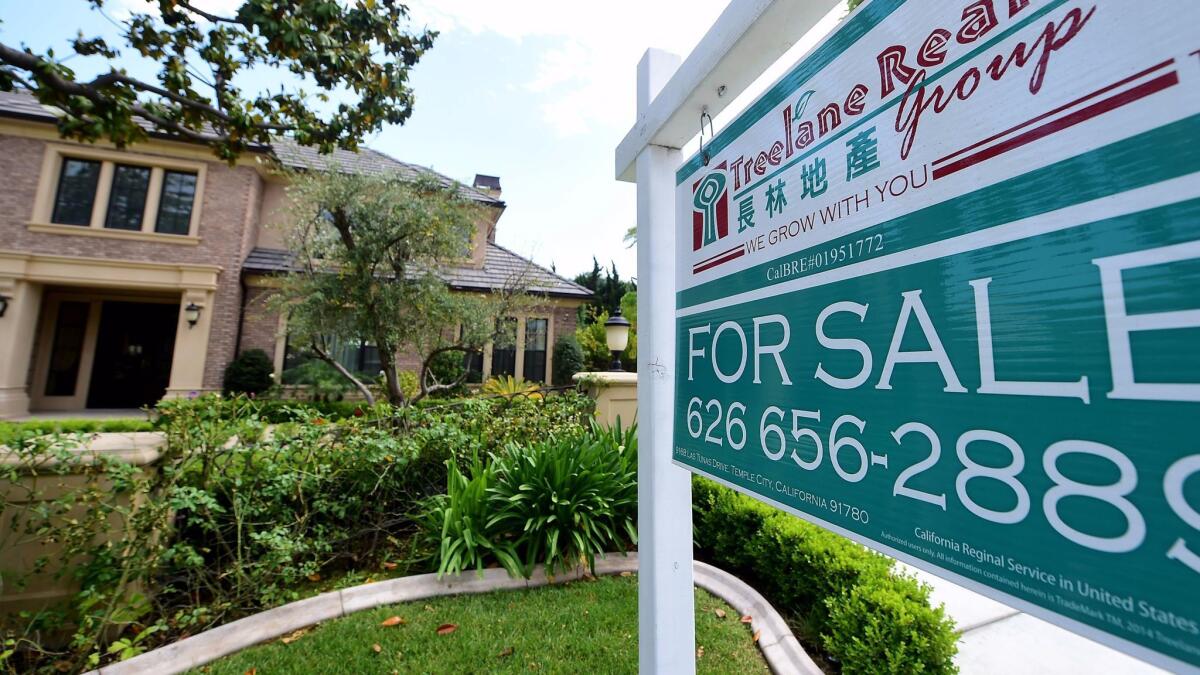Column: Political Road Map: Here’s how aging baby boomers will change the impact of Prop. 13

America’s annual display of pyrotechnics has come and gone, but there’s an easy way to see political fireworks in California any time of the year: just strike up a discussion about the legacy of the state’s property tax revolt, Proposition 13.
Within a few minutes, the sparks will be flying.
Either revered or reviled, no ballot initiative changed California’s politics more than the 1978 law written by activists Howard Jarvis and Paul Gann. Nor has any ballot measure had a more lasting impact on government operations, cutting billions of dollars in taxes that would otherwise have gone to local governments and schools.
Its wording remains the same, but Proposition 13‚Äôs impact is about to change ‚ÄĒ thanks to aging baby boomers.
The law uses purchase price to set the base rate for property taxes. That rate can’t increase more than 2% a year until the home changes hands. Over time, Proposition 13 has shielded longtime property owners from much of the impact of four decades of rising real estate values.
The independent Legislative Analyst‚Äôs Office dug deep into the law‚Äôs impacts over the past year in Los Angeles and Bay Area communities. And there was ample evidence to show even next-door neighbors ‚ÄĒ with homes of roughly equal value were they to be sold ‚ÄĒ can have wildly different property tax bills.
That helps explain why a number of properties simply don’t go on the market. In a report last month, the analysts noted while 16% of properties statewide were sold in 1977-78, just 5% were sold in 2014-15. Less turnover means tax rates don’t get recalibrated, resulting in less revenue for government services.
But the report concluded that’s likely to change, as more than half of California’s homeowners are 55 or older. The homes of baby boomers, as their lives come to an end or when they seek alternatives like assisted living, will end up on the market. The property tax rates for new owners will be set by higher purchase prices.
The impact could be substantial. The report pointed out that the typical homeowner over the age of 65 has been in that house for at least 20 years. Many of those are in Southern California.
Political Road Map: Gov. Jerry Brown‚Äôs wall of debt crumbles, but larger debts remain ¬Ľ
Every additional dollar in local property tax shrinks the state income and sales taxes needed to operate K-12 schools ‚ÄĒ a positive domino effect that ultimately means more revenue for other government services.
Were this the end of the story, policy analysts and lawmakers might start thinking about where to spend the money. But not so fast.
Baby boomers may not have to sell their homes. An older homeowner can transfer ownership to an adult child ‚ÄĒ without triggering a reset of the property tax rate. California voters approved that strengthening of Proposition 13 in 1986.
The Legislative Analyst’s Office reported the most recent numbers show the parent-to-child exemption reduced 2014-15 property tax revenues statewide by $1.5 billion. In Los Angeles County, the cost was $241 million.
‚ÄúIt is likely the fiscal effect of this exclusion will grow in future years,‚ÄĚ wrote the authors of the June report, ‚Äúas California‚Äôs homeowners continue to age and look to transition their homes to their children.‚ÄĚ
For the better part of 40 years, Proposition 13 and its landmark change in taxation have been the ‚Äúthird rail‚ÄĚ ‚ÄĒ the electrified part of the track ‚ÄĒ of California politics. Touching it, it‚Äôs believed, is electorally fatal. That‚Äôs held true even in the face of criticism that it places an unfair tax burden on younger Californians. Liberal activists have long demanded an overhaul.
But the brand of Proposition 13 has remained potent, a political shorthand for low taxes. The 1978 campaign hinged on the stories of seniors struggling to pay their taxes and keep their houses. The law’s next chapter will depend on what happens to a new generation of older Californians.
Follow @johnmyers on Twitter, sign up for our daily Essential Politics newsletter and listen to the weekly California Politics Podcast
ALSO:
Califirnia’s government will spend more than ever before under the new state budget
Updates on California politics and government
More to Read
Get the L.A. Times Politics newsletter
Deeply reported insights into legislation, politics and policy from Sacramento, Washington and beyond. In your inbox three times per week.
You may occasionally receive promotional content from the Los Angeles Times.











